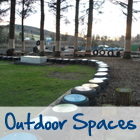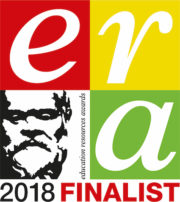“When we walk to the edge of all the light we have, and we take the step into the darkness of the unknown, we must believe that one of two things will happen. There will be something solid for us to stand on, or we will be taught how to fly.”
Patride Overton, Edges
I often get asked for advice about going freelance and undertaking outdoor learning consultancy work. The aim of this post is to answer some basic queries about taking the plunge.
Why go freelance?
It’s helpful to be absolutely sure that this is the direction you wish to take. It is perfectly possible to be part time freelance and work in a regular job. This is usually the safest route as income is fickle.
The hours are very long. The pay is not as good as being a teacher or in a full-time job where you are employed. There are administrative tasks and all sorts of hidden costs and time consuming tasks. For example, completing the tax returns and having public liability insurance. You do not get paid for holidays nor receive a pension unless you can afford to set one up. You have to utterly love and believe in the work you are doing and be prepared to graft.


What skills and experience do you need to become a freelance consultant?
This depends very much on the nature of the work you wish to undertake. For example, if you work with mainstream education establishments, then you must know and understand how this sector works. You have to be able to offer a unique service that the education sector needs and wants. You should have confidence in your abilities to do a great job.
I became a freelance education consultant because it was the only way I could do the work I wanted to do. There are no outdoor learning advisory posts in Scotland. I wanted to provide support, training, advice and resources to enable practitioners to get children outside as a natural part of effective learning and playing. I want to help people rethink learning outdoors as a valid and helpful contribution to meeting children’s needs. As a former head teacher with lots of outdoor learning experience I felt I had a unique contribution to make.
Are there other options instead of freelance work?
Yes. I know people who have set up charities and education trusts. This means applying for funding and grants which is time consuming. However, it does mean that your organisation is likely to last. Freelancers come and go much quicker, as a general rule of thumb. Do remember that even charities have to make a profit to exist and are accountable for their work and finances.
How do you get started?
In the UK, all it takes is to fill in the tax form and post it off! It’s very simple. Setting up a company is a little more complex. Establishing a trust or charity involves additional work. Every country has agencies which help businesses start up. In the UK, it is Business Gateway. They provide advice, courses and support.

How do you get work?
Mostly through word of mouth. Some freelancers approach local schools, parent groups, etc. and make them aware of their services. National agencies and charities sometimes need specific work undertaken. When this happens they issue tender documents. I bid for this work. It’s worth contacting these organisations and ask to be put on their lists of people they contact when such work comes up. Also local organisations sometimes need teachers and educators to write materials or do specific work. So ask around!

Do you employ people?
No. As a former head teacher, I know the complexities and responsibilities of employing others. I subcontract work that I am unable to do to others or recommend other consultants. Sometimes big projects come up with tight timescales that require more than one person to complete effectively. When this happens I work with other freelance consultants. Shared work is more complex and time consuming but more satisfying – I like teamwork. If you go freelance, let me know. We could end up working on joint projects!
Do you have student placements?
Yes. Local students can work alongside and shadow me on a part-time and occasional basis. This is usually done on mutually suitable terms. They help with simple administrative tasks and act as gofers when I deliver courses. The work is voluntary initially but paid work does happen too. I need students with a positive, reliable, hard-working, go-for-it attitude. It does not matter which subject a student is studying. In the long-term I want people who will be ambassadors for getting children outdoors, regardless of which profession they end up working in.

How do you know what to charge?
This is tricky. Contract work normally has a fixed price over which you cannot bid. I have learned through trial and error, mostly through undercharging and then regretting it! I get a heavy feeling in the pit of my stomach that I’ve undersold my services. I remain the main breadwinner in my family in spite of the financial uncertainty.
Further information?
This is only a brief outline. I love the freedom, flexibility, challenge and creativity that freelance work brings. Please do contact me if you have more queries.
“For once you have tasted flight, you will walk with your eyes turned skyward. For there you have been, and there you long to return.”
Leonardo da Vinci





























